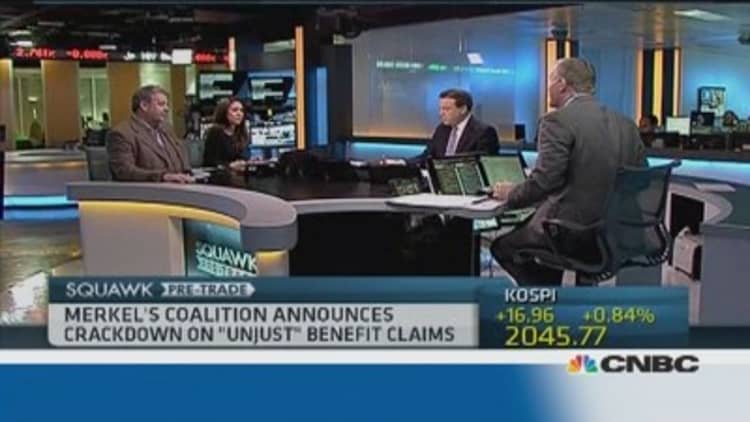UK ministers are under growing pressure to intervene against plans by the island of Malta to sell EU passports for 650,000 euros, allowing buyers immediate rights of residency in all member states.
Several EU states already give wealthy foreigners a fast-track to citizenship on the back of a government bond or property investment. But the new scheme – due to be formally opened by the Maltese government later this month – is unique in offering an instant passport to approved applicants with no requirement to be resident in the country beforehand.
(Read more: Buying citizenship:Which nations are affordable?)
The plans have already prompted a backlash from UK and European politicians warning of a risk to national security, while immigration experts point out the threat to the UK's own "investor visa" programme. This has been increasingly popular with the Chinese as well as Middle Eastern investors seeking a safe haven from the Arab Spring.
More from the Financial Times:
EU concern over 'passport for sale' plan
UK system blamed for abuse by migrants
Concern grows over 'investor' visa checks
David Hanson, shadow immigration minister, said he had "serious concerns" about the Maltese proposal and had tabled parliamentary questions to find out what steps the Home Office had taken to oppose it. "This risks being a backdoor route to reside anywhere in the EU which is not a tight or appropriate immigration policy", he told the Financial Times.
Manfred Weber, vice-chairman of the European People's party, the centre-right bloc in the European Parliament, complained of the particular threat facing those in the passport-free Schengen area.

"Schengen is a European project that is based on mutual trust and should not be undermined by steps like this," he said.
For Kamal Rahman, head of immigration at Mishcon de Reya, the Maltese passport represents the "single biggest rival" to the UK investor programme on the basis that 650,000 euros is a "small price for a highly reputable passport".
"It addresses all the critical concerns relevant to the global high net worth community," Ms Rahman said. "We have a large number of clients urgently awaiting the launch of the programme and are instructed to submit applications at the earliest opportunity."
(Read more: )
The UK's own investor programme invites foreigners to make investments of £1m, £5m or £10m in gilts or British companies in return for permission to apply for permanent residence in five, three or two years, respectively. However, in order to qualify for this, applicants must not spend more than 180 days outside the UK each year.
Malta's opposition Nationalist party declared a "black day for democracy" when the passport scheme was made law last month. Since then ministers have had to make a series of concessions to appease their political rivals.
Malta, a member of the Commonwealth as well as the EU, has also had to engage in a round of diplomacy following concerns raised by the US and others, the FT understands, as Maltese citizenship allows visa-free travel to the US and 160 other countries.
(Read more: Is it gettingtougher to work around Europe?)
The European Commission has no formal right to intervene in an EU member's sovereignty laws, but EU officials privately recognise that the Maltese government's move poses serious concerns to other member states' security.
"Legally it is not possible for the commission to intervene on this matter, the Brits would be the first to cry foul if we even tried to get involved on a matter of national competency," said an EU official who asked not to be named.
Eric Major, chief executive of Henley & Partners – who is administering the programme on behalf of the Maltese – insisted that passports would be approved only if applicants passed an "extremely vigilant due-diligence process".
"I want the system to be transparent, open and objective", Mr Major said.
Follow us on Twitter: @CNBCWorld

